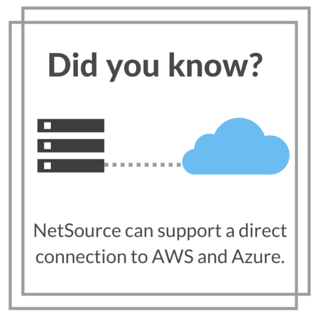So far in the Back to Basics series we’ve covered the benefits of and potential drawbacks to each of the following hosting services: colocation, dedicated leased servers, and cloud. In this final part we will discuss a highly trending topic – hybrid hosting.
What is hybrid hosting?
Without a doubt, many businesses today have started to move some or all of their workloads to the cloud. Did you know that, according to recent studies, 60% of these efforts fail in some regard? Many hosting providers sell businesses on a panacea – a public cloud that can solve all problems. Unfortunately, as of today, that solution does not exist, except for maybe the most simple implementations. Don’t fall into the trap! With full knowledge, your business can implement what does work well in the public cloud and allocate the rest to a different type of hosting that is a better fit. This is what you call a hybrid hosting environment. You choose the right hosting tool to solve each individual problem. Many companies with complex workloads find this to be the perfect way to reap the many benefits of cloud without compromising their critical applications and data.
Click here to view the infographic.
What should I know before jumping in to a hybrid solution?
So you are now convinced that hybrid is the way to go and are ready to jump right in. Most likely you won’t go too far wrong. However, there are some important things to consider first. Most importantly, how will the different types of hosting interconnect? With colocation and dedicated leased server hosting, connecting them together on a network is fairly straightforward. But when you use public cloud hosting as part of the solution, other concerns may arise.
For example, say you use Amazon Web Services (AWS) public cloud hosting for the front end of your application, maybe a web portal to access some sort of public service. However, your application is extremely data intensive and the public cloud cannot support your huge databases well. So you decide to implement dedicated leased servers to collect and process this data. Problem solved, right? Not so fast. How do the public cloud based servers access the databases in the leased dedicated servers? At a minimum you will need to connect the public cloud servers to the dedicated servers via a VPN over the Internet – and all good public cloud offers should support that. But wait! Going over the Internet to access the database might work, but more likely than not you are going to encounter performance and reliability problems.
 One key solution to this hybrid environment is to directly connect the public cloud environment to the traditional hosting environment. AWS, Microsoft Azure, and other cloud providers support this. You can order a direct connection and avoid going over the public Internet to connect the two environments, solving any performance and reliability issues. Did you know that NetSource can support a direct connection to AWS and Azure? This solution can prove to be quite costly, however it may be a necessary solution for many.
One key solution to this hybrid environment is to directly connect the public cloud environment to the traditional hosting environment. AWS, Microsoft Azure, and other cloud providers support this. You can order a direct connection and avoid going over the public Internet to connect the two environments, solving any performance and reliability issues. Did you know that NetSource can support a direct connection to AWS and Azure? This solution can prove to be quite costly, however it may be a necessary solution for many.
A more affordable solution would be to use the NetSource CloudTM and order a direct connection to your traditional hosting services right here in the datacenter. You get essentially the same public cloud services, but your direct connection is close and relatively inexpensive. Which ever way you choose to go, you will get a fast and reliable connection between your hosting environments.
The example above is just one of the many types of special hosting problems you can solve using a hybrid environment.
What are the key benefits to hybrid hosting?
- Custom solution – best of all worlds
- Increased efficiency which leads to cost savings
- Eliminate most of the disadvantages of any one hosting type
- Various additional benefits that come with each hosting solution you choose – high performance, security, compliance, etc.
- Your focus can remain on the growth of your business, not IT infrastructure
Almost every business can benefit from a hybrid approach. Hybrid environments are a big trend and the way we see most companies heading. Hybrid environments take the best of all worlds to combine technology into an integrated hosting environment that solves your specific hosting problems.
Contact NetSource today to find out how we can help you build, grow, or improve your hosting environment.
